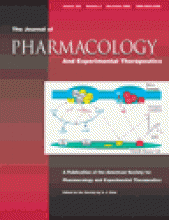Abstract
The ability of reboxetine, a selective inhibitor of the norepinephrine transporter and noncompetitive antagonist at neuronal nicotinic receptors, to alter nicotine self-administration in rats was compared with that of mecamylamine, a classical noncompetitive antagonist at nicotinic receptors. The ability of reboxetine to alter sucrose-maintained responding was also examined to assess the specificity of the effect on nicotine self-administration. Rats were trained on a fixed ratio 5 schedule to self-administer nicotine (0.02 mg/kg/infusion i.v.) or to respond for sucrose pellets. Upon reaching a stable baseline, rats were pretreated 15 min before the session with vehicle, reboxetine (racemic), (+)-(S,S)-reboxetine (0.3–30 mg/kg s.c.) or mecamylamine (0.5–4 mg/kg s.c). To assess the effect of repeated administration, reboxetine (5.6 mg/kg) was injected once daily for 14 consecutive sessions before either nicotine self-administration or sucrose-maintained responding. Specificity was further assessed by examining the ability of repeated administration of reboxetine (5.6 mg/kg) to alter nicotine-induced hyperactivity (0.8 mg/kg). Reboxetine, (+)-(S,S)-reboxetine, and mecamylamine dose dependently decreased nicotine self-administration by ∼60%, whereas reboxetine and (+)-(S,S)-reboxetine decreased sucrose-maintained responding to a lesser extent (∼20%). Repeated administration of reboxetine (5.6 mg/kg) decreased nicotine self-administration and sucrose-maintained responding across the 14 sessions, suggesting that tolerance did not develop to these effects of reboxetine. Additionally, reboxetine did not alter baseline locomotor activity, indicating that the decrease in operant responding for nicotine and sucrose was not the result of a nonspecific decrease in activity. The reboxetine-induced decrease in nicotine self-administration and sucrose-maintained responding may be the result of inhibition of norepinephrine transporters and/or neuronal nicotinic receptor function.
Footnotes
-
↵1 Current address: Department of Psychology, Dickinson College, P.O. Box 1773, HUB Building/College and Louther Streets, Carlisle, PA 17013.
-
Funding to support these studies was provided by the Pharmacia Corporation. A.S.R. was supported by a National Institutes of Health training grant (T32 DA07304).
- Abbreviations:
- nAChR
- nicotinic acetylcholine receptor
- ANOVA
- analysis of variance
- DHβE
- dihydro-β-erythroidine
- α4β2*
- α3β4*, and α7*, asterisks indicate putative receptor subtype assignment
- Received December 19, 2001.
- Accepted August 7, 2002.
- The American Society for Pharmacology and Experimental Therapeutics
JPET articles become freely available 12 months after publication, and remain freely available for 5 years.Non-open access articles that fall outside this five year window are available only to institutional subscribers and current ASPET members, or through the article purchase feature at the bottom of the page.
|






